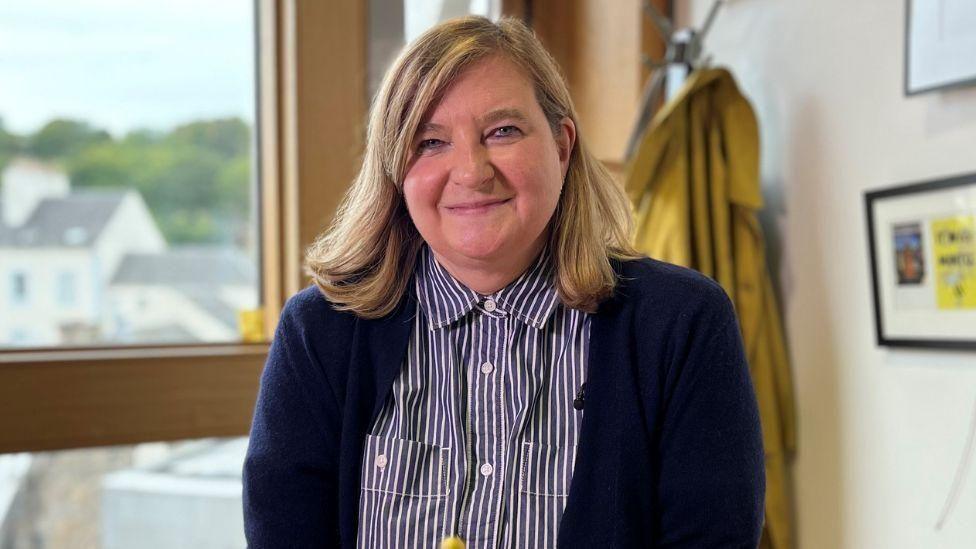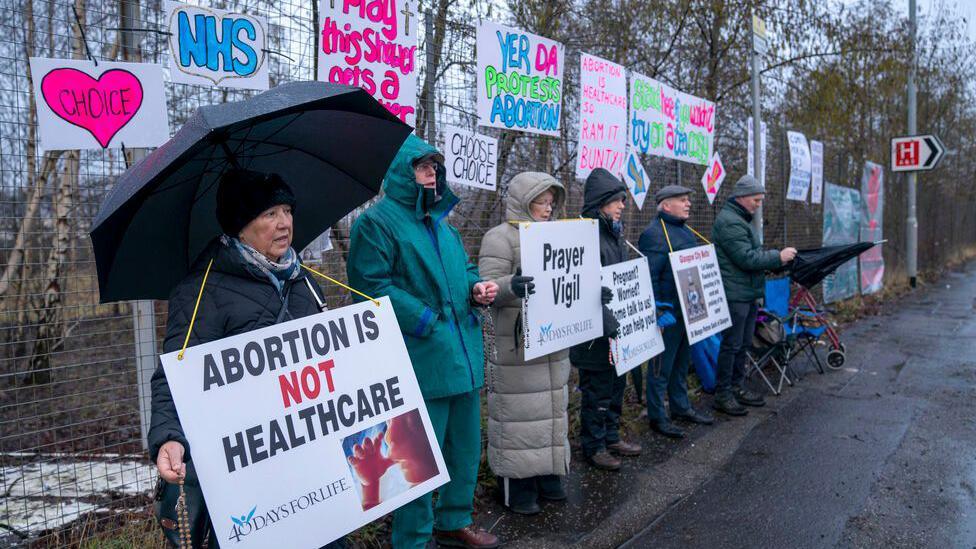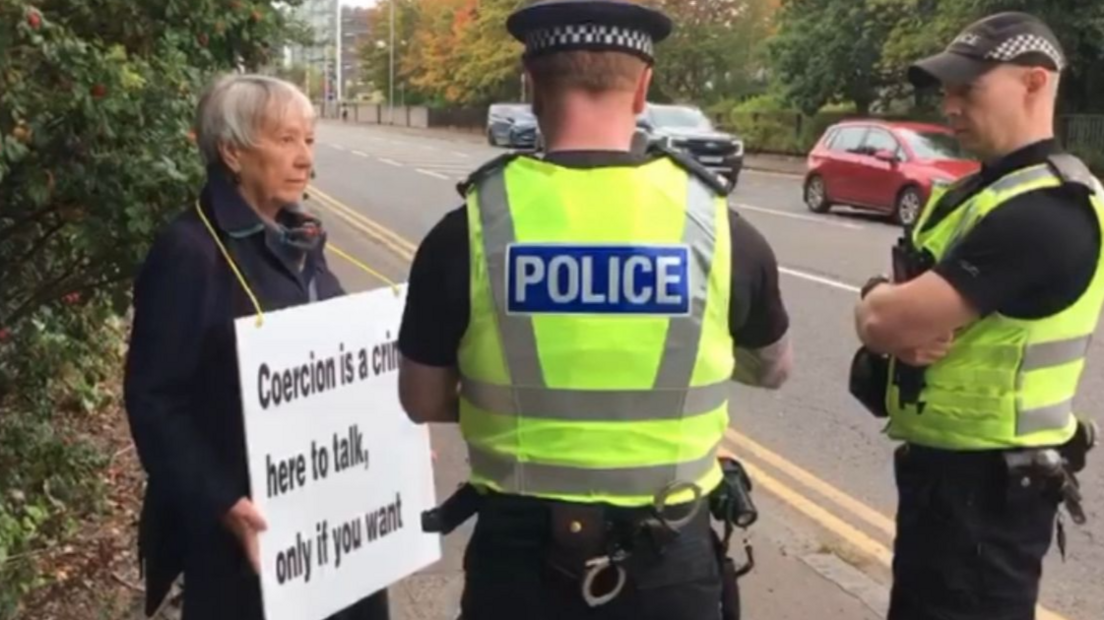Scottish abortion law 'not fit for purpose', says expert group

- Published
Scotland's abortion laws are "not fit for purpose" according to an expert group, which has called for legal recognition for a woman's right to choose.
Currently, an abortion is only legal before 24 weeks when two doctors agree that certain grounds have been met - such as a risk to the mother's physical or mental health.
An independent report recommends that these grounds are dropped, and doctors' agreement should only be required for late-term abortions after 24 weeks.
The Scottish government said it would carefully consider the proposals and women would continue to be supported to access "safe and timely" services.
The Abortion Law Expert Group, chaired by Prof Anna Glasier, was commissioned by the Scottish government to review existing law.
It said the current system requiring approval from two doctors was "anachronistic, paternalistic and failed to reflect best modern practice".

Public health minister Jenni Minto said the Scottish government would consider the report
It stated: "The group agreed unanimously that current Scottish abortion law is not fit for purpose and that alternative models should be considered.
"Legal recognition should be given to the woman's right to make their own decision regarding whether to continue or to end a pregnancy, and that abortion should become available on request, at least within gestational limits."
After 24 weeks, an abortion is only possible in very limited circumstances, such as to save the life of the mother or if there is a fatal anomaly with the foetus.
The group said it considered clinical practice, international examples, academic research and a range of views from across Scotland.
Prof Glasier said: "The group worked incredibly hard, and benefited greatly from the input and expertise of a wide range of stakeholders, to develop evidence-based, balanced recommendations.
"The report demonstrates the group's view that it is time for an abortion law that reflects the reality of current clinical practice where abortions are safely provided in the best interests of women."
'Women are supported'
Christian campaign group, Care for Scotland, urged ministers to reject the "extreme proposals" in the report.
Director of advocacy and policy, Caroline Ansell, said: "If enacted, we believe they would have heartbreaking consequences for women and babies, including exposing more women to the dangers and harms of late-term abortions."
The Scottish government said it would begin its own period of evidence-gathering and "engagement with a range of stakeholders".
Scotland's minister for public health, Jenni Minto, said: "It is right that we continue to ensure that abortion is treated as a healthcare matter and that women are supported to access safe and timely abortion services.
"The recommendations within the report represent the views of the expert group – it is only one part of this review process.
"We will take time to carefully consider all the findings and respond in due course."

This is a significant report which could pave the way for a major change in the way abortion is viewed and administered in Scotland. But that change is unlikely to be happening any time soon, given how close we are to the end of the parliamentary term.
Scottish ministers have a fairly clear view on the issue – they pointedly talk about abortion as a healthcare issue, not a criminal one.
However, they are also going to take time to do their own evidence-gathering, and any changes would require primary legislation which would take months to get through parliament.
We shall see if their promised response materialises before Holyrood breaks up for the election – which oddly enough is 24 weeks away.
But really what will tell us the most about the future of abortion care is what makes it into party manifestos for that poll – because it will be MSPs in the next Scottish Parliament who ultimately end up making the decision.
- Published5 September 2024

- Published27 September

- Published15 February
